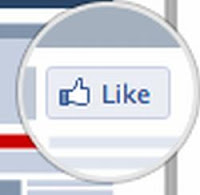Keith Rawson made a compelling case recently for authors not having Facebook Pages. While I see—and appreciate—his points, I have also over-thought myself into a fervor…and decided that Pages do have a viable role for other-than-household name authors. Here’s my logic:
Facebook profiles are personal. If you’re a published author, you are, by definition, a celebrity, even if you’re just starting out or have a smaller fan base. But your profile is for you as a person. Not for your brand.
I know, I know…as an author, you are your brand, but bear with me…
If you’re like most people, your personal profile includes stuff that can only be described as, well, personal. Family photos. Comments on politics. Reminiscences from your high school days.
Some of that might have a place within your brand, but to promote your book just on your personal profile page is odd because that’s exactly what a Page is for. A Page lets people who are interested in your product—your books or blog or anything else you write—discuss said products. If you’re a writer and you have just a personal profile, you’re missing an opportunity to stake out your corner of the social media sandbox, where your band of fans can gather. Believe me, we want to gather.
The single most important reason I think authors/writers should have pages is that they create a place where those who like your books can talk to each other without having to be connected through their personal profiles. For example, I might want to share my joy in reading a specific author’s books with a random stranger in Omaha, but I don’t necessarily want to let said stranger in on pictures of my friends and family or my diatribes on American culture.
On a Page, you can choose to post updates and interact, or not. Of course, the marketeer in me recommends that you do, but you need not feel compelled to respond to every single post. No, really. Don’t feel compelled.
If you’re inclined to figure out Facebook’s cumbersome rules regarding contests and giveaways, a Page is also an excellent venue for those. If you don’t want to read the fine print, drop me a line…yes, I bothered to read it all.
Facebook is the largest site, yes, but it’s also not all about numbers. Counter-intuitive, I know. When you first set up a Page, it’s impossible to not watch the number of who like it tick up…sometimes quickly, sometimes painfully slowly. Still, successful pages—that is, those that actually sell products (again, books) and build brands, rather than just attracting lots of people who click Like for the chance of getting a free sample of Tide—deliver content. They give people a reason (other than a desire to click “Unlike”) to come back and hang out.
For the record, the above actually supports Keith’s #1 Facebook Don’t. Even though I’m advocating doing it on a Page. And on that topic…
Some things I agree with Keith completely, unabashedly and unreservedly about deserve repeating:
- Using a page to spam people via posts is stupid and lame. And so unnecessary, because you can share links, videos, pictures and text relevant to your product (books) and brand (yourself) easily. I also love the “questions” functionality, where you can do little polls. Yes, they’re silly and unscientific, but they’re fun, dammit.
- Page admins used to be able to message everyone who liked a page en masse, but they’ve thankfully done away with that. Now, you can only message someone if you’re friends with that person through your personal profile.
- For the love of whatever you believe in, do not use Twitter to post to Facebook. Turn. That. Off. Now.
And the last reason I like Pages: View Insights. Insights provide aggregate data on where those who visit your page are coming from (both geographically and which sites), how old they are, whether they’re male or female, and what kinds of content resonate with them. They’re not super-fancy analytics, but they’re useful in guiding marketing strategy and tactics, particularly if you’re spending your own money.
Don’t get me wrong; I get as mad at Facebook as the next gal. Use the F word and everything. But I’m not giving up on Pages just yet.
What do you think? Are Pages worthwhile? Or just annoying?



